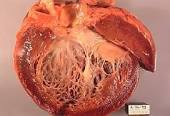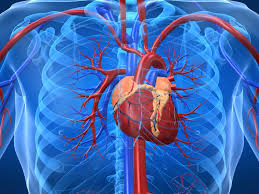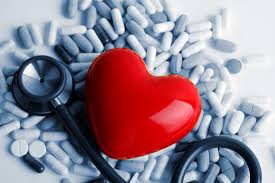
Diagnosed with Cancer? Your two greatest challenges are understanding cancer and understanding possible side effects from chemo and radiation. Knowledge is Power!
Learn about conventional, complementary, and integrative therapies.
Dealing with treatment side effects? Learn about evidence-based therapies to alleviate your symptoms.
Click the orange button to the right to learn more.
- You are here:
- Home »
- Blog »
- side effects ID and prevention »
- Coenzyme Q10 Is Safe and Effective Cardiomyopathy Therapy
Coenzyme Q10 Is Safe and Effective Cardiomyopathy Therapy

There was no positive evidence of toxicity or intolerance in a total of 368.9 patient-years of exposure. Coenzyme Q10 is safe and effective long-term therapy for chronic cardiomyopathy.”
If you’re reading this post because you have cardiomyopathy or you think you have cardiomyopathy, you’ve come to the right place. Though I was diagnosed with a blood cancer in early 1994, I was diagnosed with chemotherapy-induced cardiomyopathy and chronic atrial fibrillation in late 2010. This is the definition of a late stage side effect.
In my opinion, your first task is to assess your type and degree of heart failure. I’ve linked the info to do both of those below.
Based on the AHA “Classes of Heart Failure” below, I think I’m 3 B/C, dialated cardiomyopathy. I have had chronic atrial fibrillation since late 2010. I do not recommend only a self-diagnosis. Go see a cardiologist.
I’m simply saying that learning about your heart health, your symptoms, conventional medications, non-conventional medications, etc. all on your own, can be empowering. Yes, develop a strong relationship with a cardiologist, but you are in charge of your health, not the cardiologist. I say this based on my experience as a long-term cancer survivor.
Evidence-based, non-toxic therapies like CoQ10, discussed below, can prove to be
- non-toxic
- effective
- inexpensive
- integrative therapy
All of the above make CoQ10 a valuable therapy. Yes, talk with your cardiologist about all of your lifestyle therapies- frequent, moderate exercise, diet, lifestyle, supplementation, everything. Balance the risk/benefit of both conventional and evidence-based, non-conventional therapies such as CoQ10.
To learn more about evidence-based but non-toxic heart health therapies like CoQ10, scroll down the page, post a question or comment and I will reply to you ASAP.
Thanks,
David Emerson
- Cancer Survivor
- Cancer Coach
- Director PeopleBeatingCancer
Recommended Reading:
- CoQ10 (coenzyme Q 10) ubiquinone for chemo-induced heart damage
- CoQ10 Prevents Chemotherapy Side Effect- Anthracycline-induced Cardiotoxicity
- Cancer Survivors, Cardiovascular Disease and How to Treat It
Cardiomyopathy
“Cardiomyopathy is a group of diseases that affect the heart muscle.[1] Early on there may be few or no symptoms.[1]Some people may have shortness of breath, feel tired, or have swelling of the legs due to heart failure.[1] An irregular heart beat may occur as well as fainting.[1] Those affected are at an increased risk of sudden cardiac death.[2]
Types of cardiomyopathy include hypertrophic cardiomyopathy, dilated cardiomyopathy, restrictive cardiomyopathy, arrhythmogenic right ventricular dysplasia, and takotsubo cardiomyopathy (broken heart syndrome).[3] In hypertrophic cardiomyopathy the heart muscle enlarges and thickens.[3] In dilated cardiomyopathy the ventricles enlarge and weaken.[3] In restrictive cardiomyopathy the ventricle stiffens.[3]…”
Classes of Heart Failure
“Doctors usually classify patients’ heart failure according to the severity of their symptoms. The table below describes the most commonly used classification system, the New York Heart Association (NYHA) Functional Classification1. It places patients in one of four categories based on how much they are limited during physical activity…”
A six year clinical study of therapy of cardiomyopathy with Coenzyme Q10
“One hundred and forty-three cases of chronic, stable, non-secondary, non hypertrophic cardiomyopathy, 98% of whom were in NYHA Classes III and IV, were given 100 mg of coenzyme Q10 orally in addition to their conventional medical programme in an open-label long-term study.
Blood CoQ10 levels, clinical status, myocardial function and survival have been recorded now for almost 6 years. Mean control/CoQ10 levels of 0.85 micrograms/ml rose to 2 micrograms/ml in 3 months and remained stable at that level.
Mean ejection fraction of 44% measured by systolic time interval analysis rose to 60% within 6 months and stabilized at that level with 84% of patients showing statically significant improvement.
Eighty-five percent of patients improved by one or two NYHA Classes. Survival figures were encouraging with an 11.1% mortality in 12 months and 17.8% mortality in 24 months, comparing favorably with several reports in the literature.
There was no positive evidence of toxicity or intolerance in a total of 368.9 patient-years of exposure.
Coenzyme Q10 is safe and effective long-term therapy for chronic cardiomyopathy.”
Hypertrophic cardiomyopathy
“Hypertrophic cardiomyopathy (HCM) is a condition in which a portion of the heart becomes thickened without an obvious cause.[9] This results in the heart being less able to pump blood effectively.[3] Symptoms vary from none to feeling tired, leg swelling, and shortness of breath.[2] It may also result in chest pain or fainting.[2] Complications include heart failure, an irregular heartbeat, and sudden cardiac death.[3][4]…”
Treatment of hypertrophic cardiomyopathy with coenzyme Q10
“Hypertrophic cardiomyopathy (HCM) is manifested by severe thickening of the left ventricle with significant diastolic dysfunction. Previous observations on the improvement in diastolic function and left ventricular wall thickness through the therapeutic administration of coenzyme Q10 (CoQ10) in patients with hypertensive heart disease prompted the investigation of its utility in HCM.
Seven patients with HCM, six non-obstructive and one obstructive, were treated with an average of 200 mg/day of CoQ10 with mean treatment whole blood CoQ10 level of 2.9 micrograms/ml.
Echocardiograms were obtained in all seven patients at baseline and again 3 or more months post-treatment. All patients noted improvement in symptoms of fatigue and dyspnea with no side effects noted.
The mean interventricular septal thickness improved significantly from 1.51 +/- 0.17 cm to 1.14 +/- 0.13 cm, a 24% reduction (P < 0.002). The mean posterior wall thickness improved significantly from 1.37 +/- 0.13 cm to 1.01 +/- 0.15 cm, a 26% reduction (P < 0.005).
Mitral valve inflow slope by pulsed wave Doppler (EF slope) showed a non-significant trend towards improvement, 1.55 +/- 0.49 m/sec2 to 2.58 +/- 1.18 m/sec2 (P < 0.08).
The one patient with subaortic obstruction showed an improvement in resting pressure gradient after CoQ10 treatment (70 mmHg to 30 mmHg).”



